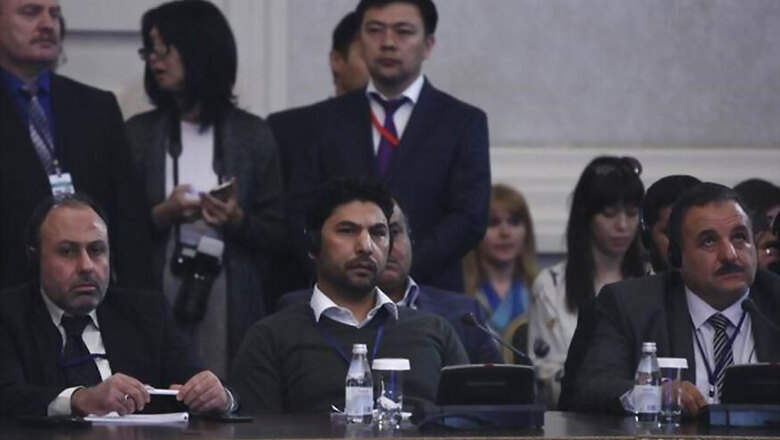
views
Astana: Syria's armed opposition on Thursday rejected a Russian plan to create safe zones in Syria, calling it a threat to the country's territorial integrity, and said it would also not recognise Iran as a guarantor of any ceasefire plan.'s armed opposition on Thursday rejected a Russian plan to create safe zones in Syria, calling it a threat to the country's territorial integrity, and said it would also not recognise Iran as a guarantor of any ceasefire plan.
Turkey, which supports Syrian rebels, and Iran, which backs Syrian President Bashar Assad, agreed earlier in the day to Russia's proposal for "de-escalation zones" in Syria, a move welcomed by the United Nations.
"We want Syria to maintain its integrity," opposition delegate Osama Abu Zaid said after Russia, Turkey and Iran - the sponsors of talks in the Kazakh capital Astana aimed at ending Syria's fighting - signed a memorandum on creating safe zones.
"We are against the division of Syria. As for the agreements, we are not a party to that agreement and of course we will never be in favour (of it) as long as Iran is called a guarantor state," Abu Zaid said.
He also cited what he called "a huge gap" between the promises of Russia, which intervened militarily in 2015 on Assad's side and gave him back the upper hand in the conflict.
"We have an agreement already (in) our hands, why isn’t it implemented? There is an agreement...signed five months ago, why hasn't it been implemented?" he said, referring to a truce deal announced by Russia in December that was largely ignored on the ground. "Why are we jumping now to safe zones?"
"Russia was not able to or does not want to implement the pledges it makes, and this is a fundamental problem."
Several opposition delegates walked out in protest, briefly interrupting the signing of the safe zones memorandum.
Russia, Turkey and Iran did not immediately publish the memorandum, leaving its details unclear. But the safe zones appear intended to be conflict-free in order to help widen a ceasefire, and would potentially be policed by foreign troops.
Senior Russian negotiator Alexander Lavrentyev told reporters on Thursday that under the plan Russia could send observers to safe zones. Third-party monitors could also be invited provided Iran and Turkey agreed, he said.




















Comments
0 comment